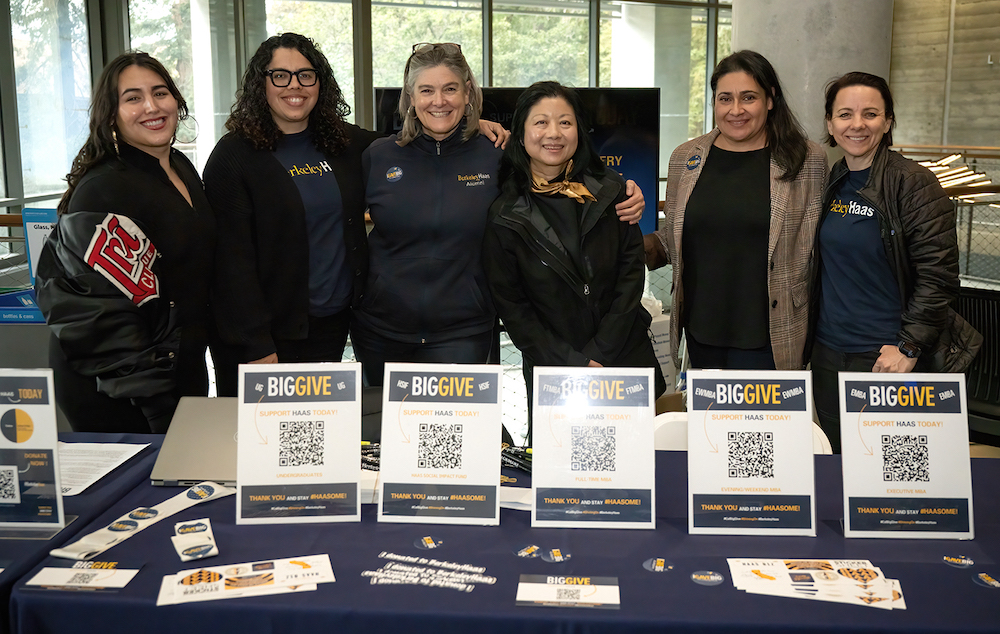Meet the Spieker Scholars: Claudia Lizeth Carrillo
Over coffee, fruit, and pastries, about two dozen female PhD students–and a few male peers–spent one morning talking about dynamic pricing of sports tickets, noisy data, and the impact of gold mining on health and education.
Welcome to the first women’s breakfast for PhD students from Haas, UC Berkeley’s Economics Department, and the Agriculture and Resource Economics Group. The new forum was inspired by a breakfast hosted by WEB, or Women in Economics at Berkeley, a group started in the Economic Department.
“We already like hanging out together,” says Aisling Scott, a second-year Haas PhD student in the Business and Public Policy Group, who organized the new interdisciplinary breakfast with Lydia Ashton and Megan Stevenson, both in ARE, and Sandile Hlatshwayo, in the Economics Dept. With women in all three departments in a clear minority, the women wanted to create a “comfortable space” for them to talk about their early research and receive feedback, says Scott.
The students plan to hold three breakfasts per semester — each hosted by a different unit — with one student from each unit presenting for 20 minutes at each breakfast. Male PhD students are invited to attend but cannot present their work.
“This is such a great idea to share research across areas,” Kate Ashley, PhD 15, a student in the Haas Operations Management Group, said at the kickoff breakfast as she began her presentation on dynamic pricing for sporting events.
As Ashley talked about fluctuations for a recent Portland Trail Blazers vs. L.A. Clippers basketball game, students in the audience peppered her with such questions as what other fields outside of sports see such changes? Airlines, hotels, rental cars—services with limited capacity—answered Ashley, who went on to describe a structural demand model for studying the strategy.
“Even though the timeframe for my presentation was short,” Ashley said later, “just getting my work out there led to some valuable conversations afterward. A couple people emailed me about the paper and suggested other papers that are relevant to my research.”
“There is still a much smaller percentage of women in business school PhD programs than men, so I think it’s important to have programs that give us an opportunity to develop our presentation skills,” Ashley added.
“And I really enjoyed hearing the other presentations, too,” she said. “I think it’s good to build these connections in other groups.”
Posted in:



